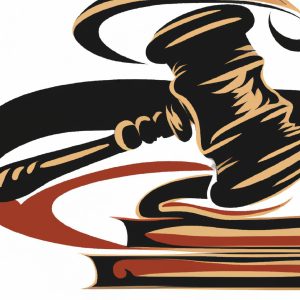In the intricate world of estate planning and probate, the role of a testator holds paramount importance. Defined as the individual who drafts a last will and testament, a testator wields the power to distribute their assets and designate beneficiaries after their passing. As seasoned professionals in the field of Wills and trusts, we at the Morgan Legal Group in New York City, understand the nuances of testatorship and its significance in safeguarding your legacy. Join us as we delve into the fundamental question – who is a testator in a will
– Understanding the Role of a Testator in a Will
As an experienced lawyer at Morgan Legal Group in New York City, I often find that clients have questions about the role of a testator in a will. A testator is the person who creates a will, also known as the “maker” of the will. This individual has the legal capacity to make decisions about how their assets will be distributed upon their death.
It is important to note that a testator must be of sound mind and have testamentary capacity when creating their will. This means they understand the consequences of their decisions and are not under any undue influence or pressure from others. Additionally, a testator must follow specific legal requirements when drafting a will, such as signing the document in the presence of witnesses. By understanding the role of a testator in a will, individuals can ensure their wishes are carried out according to their intentions.
– Key Responsibilities and Duties of a Testator
The key responsibilities and duties of a testator in a will are crucial components of the estate planning process. A testator is the person who creates and executes a last will and testament, outlining their final wishes regarding the distribution of their assets after they pass away. It is essential for a testator to carefully consider and fulfill certain obligations to ensure that their will is legally binding and accurately reflects their intentions.
Some of the key responsibilities and duties of a testator include:
- Choosing beneficiaries: The testator must clearly identify who will receive their assets upon their death.
- Appointing an executor: The testator must designate someone to carry out the instructions in their will and manage the distribution of their estate.
- Signing and dating the will: The testator must sign their will in the presence of witnesses to validate the document.
– Qualities of a Reliable Testator
Age and Capacity: A reliable testator in a will must be of legal age and sound mind. This means they must be at least 18 years old and capable of understanding the consequences of their actions when creating a will.
Clarity and Intent: A trustworthy testator must clearly express their intentions in the will. This includes stating who will inherit their assets, how those assets will be distributed, and any specific wishes they may have regarding their estate.
– Importance of Seek Legal Guidance from an Experienced Estate Planning Attorney
When creating a will, it is important to understand the role of the testator. A testator is the individual who creates and signs a will, outlining their wishes for the distribution of their assets after their passing. This person must be of sound mind, meaning they understand the implications of their decisions, the value of their estate, and the beneficiaries they wish to include.
It is crucial for a testator to seek legal guidance from an experienced estate planning attorney to ensure that their will is valid and legally binding. An attorney can help the testator navigate complex legal terminology, avoid potential disputes among beneficiaries, and ensure that all necessary formalities are properly followed. By working with a skilled attorney, the testator can have peace of mind knowing that their wishes will be carried out as they intended.
Q&A
Q: Who is a testator in a will?
A: A testator is the person who creates a will, deciding how their assets will be distributed after their death.
Q: Can anyone be a testator?
A: Generally, any person of sound mind who is of legal age can be a testator. However, there may be specific legal requirements depending on the jurisdiction.
Q: What is the importance of the testator in a will?
A: The testator is crucial in a will as they are the ones who determine how their assets will be distributed, who will inherit what, and who will carry out their wishes as the executor of the will.
Q: Is there a difference between a testator and a beneficiary in a will?
A: Yes, the testator is the person who creates the will, while the beneficiaries are the individuals or entities who will receive the assets outlined in the will.
Q: Can a testator change their will?
A: Yes, a testator can change their will at any time before their death, as long as they are of sound mind. This can be done through a codicil (an amendment to the existing will) or by creating a new will altogether.
In Retrospect
In conclusion, understanding the role of a testator in a will is crucial when it comes to ensuring that your final wishes are carried out. By clearly outlining your instructions and appointing a trusted individual to act as your testator, you can provide peace of mind for yourself and your loved ones. So, whether you are writing your own will or seeking advice on estate planning, remember that the testator plays a key role in the execution of your final wishes. Make sure to carefully consider who you choose to fulfill this important role, as they will be tasked with carrying out your legacy and ensuring that your intentions are honored.









